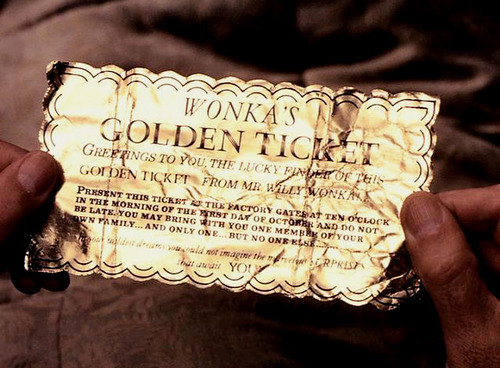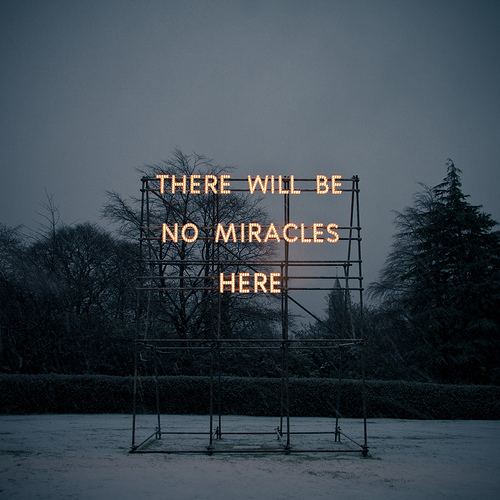
The HoopIdea campaign has been making a lot of noise around the NBA blogosphere about on how we can stop the nefarious art of tanking. Most everyone seems to agree that tanking is a bad thing, so the talk is of how to stop it. But that’s the wrong conversation. The question shouldn’t be “How do we stop tanking?” The question should be “What is the purpose of the draft?”, or, put another way, “How should the league be shaped?” If you want to frame the conversation around tanking, the first question to ask is “Is tanking a problem worth solving?”, not how to eradicate it.
The NBA, is a superstar’s league. At any given time, there are only a handful of players in the league who are good enough to lead a team to postseason glory. If the league’s goal is to promote competitive balance, to keep good teams from drafting incoming impact players and staying on top, the worst teams need a mechanism to improve. That’s why the worst teams get the best odds at the #1 pick. It’s great to say that all teams should be trying their hardest to win every game, but that ignores the fact that there is going to be tension between a team’s short term and long term goals sometimes, and no matter how Kantian you may want to frame a team’s obligations in any given game as being, front offices would be abdicating their duties if they didn’t approach things in a more realpolitik way.
“Right now superstar-grade players are going into a lottery populated by the worst teams, in a sport where one great player has more impact than in any other team sport and is locked into below-market salaries throughout their careers (because of rookie scale contracts followed by maximum-salary limits).
Meanwhile, teams that win consistently very seldom get players like that, by trade or any other means. Essentially, the best-run teams are penalized while the worst-run teams are rewarded.”
—TrueHoop
Did you catch the shift in that last sentence? The rest of the quotation is calling the best teams the ones that win the most, and the worst the ones that win the least, but then the last sentence conflates win-loss record with front office ability. But that’s not right, and sometimes exactly backwards. Do you think Otis Smith is one of the best GMs in the league? The Magic have Dwight Howard and have contended in the East in recent years, while the Bobcats got Emeka Okafor and a death spiral, and I don’t think you can chalk it up to front-savvy. In the NBA, to be a team that has a chance at rings, you need a top-tier talent. “Only four NBA champions in the last 26 years were led by players selected outside the top six picks in the draft.” Assuming it’s safe to say the goal of an NBA team is to win championships, teams that aren’t legitimate contenders should be plotting how to become one.

The NBA gives the best draft picks to the worst teams because those are the teams that need an infusion of talent the most. Some bad teams are the result of incompetent general management; some bad teams are the result of injuries; some are the result of the intentional dismantling of a good team. Regardless of how a team became bad, it needs the draft to move upwards. Because the NBA salary cap compresses the salaries of the best players, bad teams can’t use overpayment as an incentive to lure in free agents. No matter how much cap space the Bobcats have this offseason, what self-respecting player is going to sign there if he has better options?
Most of the suggestions I’ve see to “solve” tanking involve shifting the draft structure. The idea seems to be that if we can reward teams that don’t make the playoffs for winning, rather than losing, then tanking will stop. There are three problems with this approach:
1) Tanking is not the only, or even the biggest, reason teams lose. I’ll grant that when a Tim Duncan or a LeBron James is dangling in the draft, the calculus shifts, but even in those years, the worst teams record-wise were also the worst-teams talent-wise. The Bobcats, Wizards, Hornets, Sacramento, and Cleveland aren’t tanking; they’re bad. The Wizards shipped some knuckleheads out for Nene; New Orleans has dealt with injuries; Sacramento and Cleveland are more invested in developing their young players than contending right away. (I hope MJ is winning a lot of golf prop bets these days, because Charlotte is just straight awful.) There is not enough talent to go around, even putting transcendent stars aside, and injuries and luck matter in a team’s chances. Rejiggering the draft to reward the best non-playoff teams would rob genuinely awful teams of their only sure route to improvement. Take a shot at good lottery picks away from Charlotte, and how are they supposed to get better? If rebuilding for a terrible team becomes a long-term affair that requires flawless late-first round drafting, there will be an eddy of shitty teams at the bottom of the league with no hope of improvement. If you think watching a team bag the end of a season is bad for the fans, what do you think a decade of relentless awfulness would do for them? The worst thing for an NBA team to be right now is decent but no better; a team in that position can try to get better, or get short-term worse to be long-term better. If we make the worst thing for an NBA team to be genuinely bad, how is such a team supposed to escape that prison?
2) I have yet to see anyone actually define where the line is between tanking and permissible long-term planning. It seems to me that most of the decisions being made that cost teams victories happen in the front office. Is it tanking to be extra cautious bringing a marquee player back from an injury if the playoffs aren’t going to happen? Is it tanking to trade away good players to improve next year’s team? Is it tanking to play young players with better veterans riding the pine in the hope that they’ll develop into something special down the line?1 A lot of what is being tarred as tanking in this discussion could justifiably be called prioritizing the long-term over the short-term.
1: Royal jelly!3) It wouldn’t stop tanking: it would shift it. This is the realpolitik part of tanking. Tanking is how teams with no real shot at making/succeeding in the playoffs maximize their chances at a good draft pick. If we change how the draft is organized, we change where and when that tanking would happen, not whether it does. If the lottery order is reversed, you’ll have today’s 7 and 8 seed teams tanking at the end of the season to miss the playoffs. If we reward wins after a team is mathematically eliminated from the playoffs, you’ll see teams with no shot at the postseason sitting their best players with dubious injuries mid-season to clinch that elimination and then start winning again.2 It is a front office’s job to shepherd a team towards championships, not to play by the unwritten rules. That is why we have tanking now, and why we’ll always have tanking. Changing the draft would change the form, but unless you want to start judging the intent behind moves teams make 3 and punishing them for not following the spirit of the law, tanking will always exist.
2: Judging teams on how they perform relative to preseason projections seems like a particularly nonsensical suggestion to me. How would such a system take trades into account? How would you keep a significant injury from screwing a team over? Team rosters often shift significantly over the course of the season, so how can you judge a team’s season by who suits up for the first game of the year?
3: Even David Stern’s biggest detractors wouldn’t accuse him of being that Stalinesque.Here’s the other question: who exactly is tanking hurting? Clearly if offends the sensibilities of Jeff Van Gundy and Henry Abbott, for whom I weep. Beyond their loud objections, however, I have only seen anecdotal hand wringing about “the fans.”4 Fans want to see a good game, and their team win, but they also want to cheer for a long-term success. Watching his or her team lose a game the night you shelled out to go to the arena kills a fan’s evening; watching their team suck for years on end kills a fanbase.
4: Won’t someone please think of “the children”!As a non-Blazers fan resident of Portland, Raymond Felton’s season-long trolling of the team and its fans has been as hilarious as it is sad. He showed up out of shape and underachieved; feuded with the team’s long-time coach; was so bad that the team, though desperate to move him, couldn’t find any takers; was instrumental in the locker room revolt that ended up with McMillan’s firing; and now that the team has punted on the season refuses to roll over, and is finally playing near the level that was expected of him. I don’t doubt that he’s doing the best he can to do his job, but he has done exactly the wrong thing for the Blazers’ interests at seemingly every turn this season. It’s been a dizzying ride.
The gripe I hear the most about him these days is the last of those crimes. Felton is perhaps the loudest thing to have gone wrong for the Blazers this season5, but he’s hardly the only one. My Blazers fan friends grumble about how he can’t even get tanking right. All that’s left to root for at this point is the future, so every game a suddenly motivated Felton steals from the jaws of defeat is actively hurting the team’s chances at a better tomorrow. Felton is already a persona non grata, but the biggest thing he could do right now to endear himself to fans is to play poorly. Fans want their team to succeed, but not tonight at the expense of tomorrow. Give them some credit.
5: Insert depressing Greg Oden caveat here.

Some form of tanking, broadly defined, will exist so long as a team’s long-term interests don’t align with winning every game possible. Players and coaches have their pride on the line and are trying to win, but front offices have to do what is best for the team, and sometimes that will include putting the team in a position where short-term victories are hard to win. We can eradicate tanking in the current form by changing how the draft is structured, but before we start calling for that, we need to take a hard look at what effects that would have on the league as a whole, and what would take its place. The NBA is a league of haves and have-nots, with superstars as the key currency. The draft as currently constructed is the best way to distribute new talent given that reality. Tanking, insofar as we can identify it precisely, sucks. But it is the price we pay for the draft’s structure, and I have yet to see a proposed solution to the “problem” of tanking that wouldn’t make the league as a whole worse. People cheat on their taxes; that doesn’t mean we should change how taxes work. Fans can handle their teams planning for the future, even if it means sucking short-term. We don’t have to like tanking, but part of being an adult is living with things you don’t like when the alternatives are worse.

I didn't watched the first Wonka's movie but I have to admit that the second is quite good and it is quite acclaimed by price per head bookmaking community
ReplyDelete